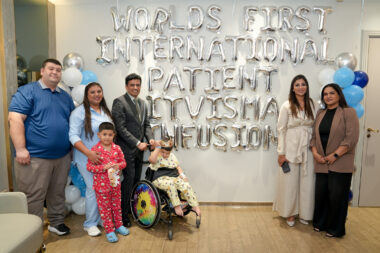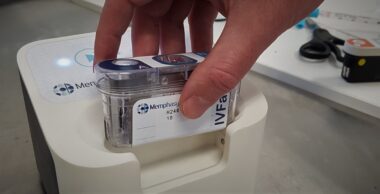Research using participants from one of Australia’s largest and longest running studies of ageing has looked at the impact of mild cognitive impairment and dementia on a person’s ability to interact in social contexts.
Social cognition refers to the set of social skills and abilities that people use to understand and interpret other people’s thoughts and feelings, and then use that information to determine their own social behaviour in response. Previously, few studies have considered social cognition in people with Alzheimer’s disease and even less is understood about social cognitive functioning in older adults with mild cognitive impairment.
The new research, led by Dr Russell Chander at the Centre for Healthy Brain Ageing (CHeBA) and published in the American Journal of Geriatric Psychiatry, assessed more than 300 community-dwelling adults aged 70-90 from CHeBA’s Sydney Memory and Ageing Study.
According to the researchers, this age bracket is a relatively understudied group in social cognition research.
“Because social cognition involves such things as the ability to read social cues, process thoughts and intentions of other people and have the capacity to demonstrate empathy, it is an important factor in Alzheimer’s disease as well as certain types of dementias, particularly frontotemporal dementia,” says Dr Chander, lead author of the study at UNSW Sydney’s Centre for Healthy Brain Ageing (CHeBA).
The findings revealed significant differences in social cognitive performance between people who had no cognitive impairment, mild cognitive impairment or mild dementia.
Social cognition was measured using the Reading the Mind in the Eyes Test (RMET), the Interpersonal Reactivity Index – Perspective Taking (IRI-PT) and Empathic Concern (IRI-EC) subscales, and the Emotion Recognition Task (ERT). Subdomain scores were then used to make a composite social cognition score. Apathy was measured separately using the Apathy Evaluation Scale (AES).
Comprehensive social cognitive assessments were undertaken by Dr Chander and his team, who found that dementia was associated with poorer overall performance in assessments of social skills. Mild cognitive impairment is associated with some deficits in social cognition that can only be detected in specific assessments, and in dementia these deficits become more pronounced that they can be identified by a person’s carer or family member.
The researchers also found that people with mild cognitive impairment performed poorly on tests that assessed people’s ability to understand what others are thinking and feeling, a skill sometimes referred to as mentalizing. People with mild cognitive impairment also performed worse in recognising facial expressions of anger, disgust and happiness.
In contrast, they found that people living with dementia scored poorer on scales looking at mentalizing, empathy, and apathy as reported by their carers than people with mild cognitive impairment.
“This evidence suggests that the dementia process is associated with impaired social skills, which can start early and are imperceptible before growing more noticeable by others as the cognitive ability worsens,” says Dr Chander.
“Expanding our work in how social skills relate to ageing lifestyles and brain health can help us to identify more of these early and subtle changes that signal the beginnings of cognitive decline,” says Dr Chander. “This can also help us understand how to help people living with dementia to continue to be socially active members of their communities, as well as lead us to facilitate targeted interventions for people with mild cognitive impairment and dementia.”
Senior author on the paper and Co-Director of CHeBA, Professor Perminder Sachdev, said that the findings demonstrate the importance of studying social cognitive abilities when considering age-related neurocognitive abilities.
“Future work should identify if there are specific features of social cognitive subdomains that are more sensitive to earlier neurocognitive changes,” says Professor Sachdev. “Developing interventions to prevent or reduce the impact of these deficits in social interactions is important to help people with cognitive problems to continue to engage in society, and to reduce the burden on carers of people with dementia.
Professor Julie Henry, Director of The Queensland Multidisciplinary Initiative for Neurocognitive Difficulties, and a co-author on the paper, further noted, “Because social cognitive skills are essential for strong social relationships, understanding when and why these skills break down will ultimately help us find new ways to reduce vulnerability to social isolation.”
Funding: NHMRC grants: Program Grant (350833), Capacity Building Grant (568940).
ARC grants: Discovery Project Grant (DP170101239), Future Fellowship (FT170100096) specific to Julie Henry; UNSW funding: Scientia PhD scholarship specific to Dr Russell Chander.
Contact details:
Heidi Douglass - [email protected]



